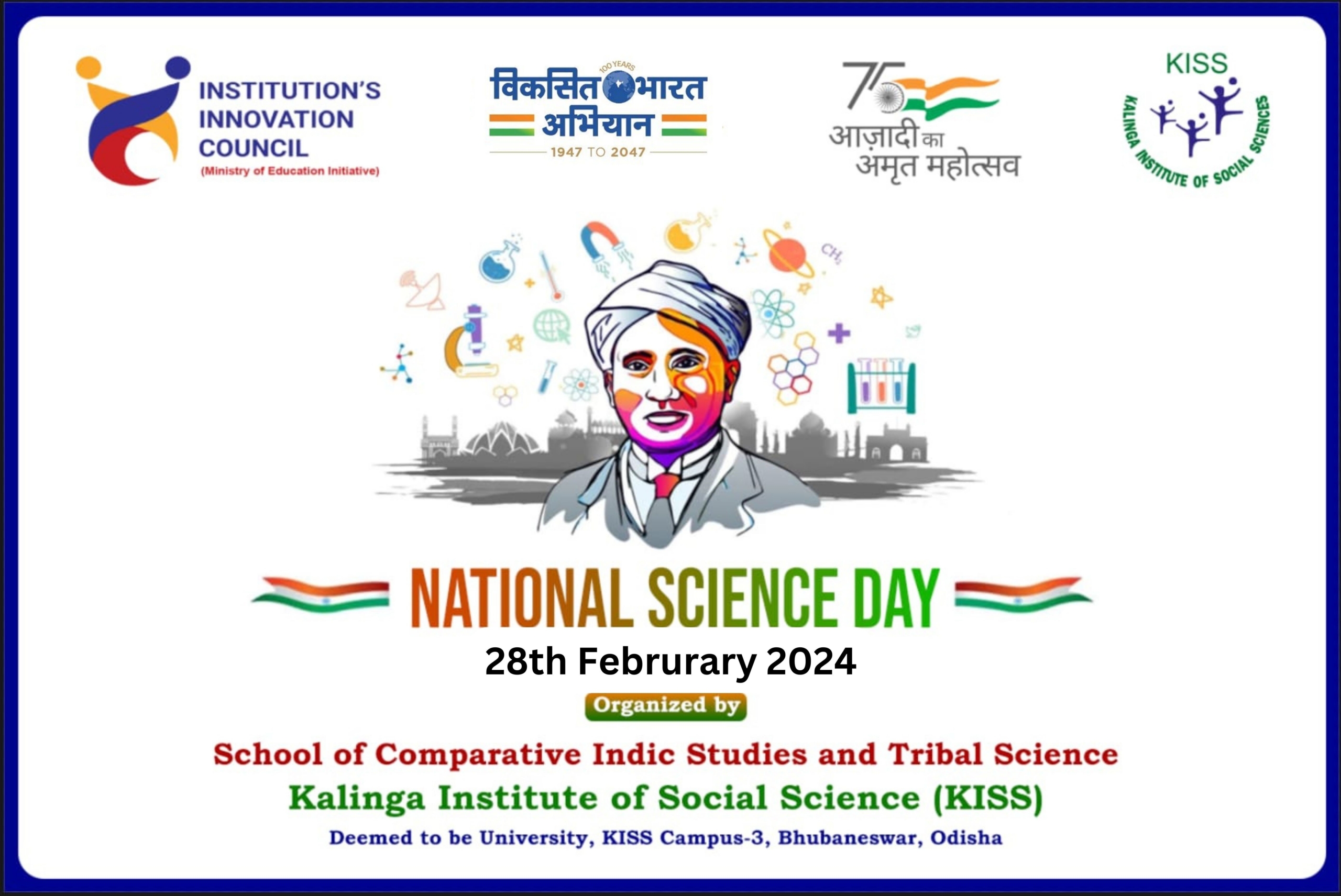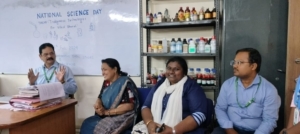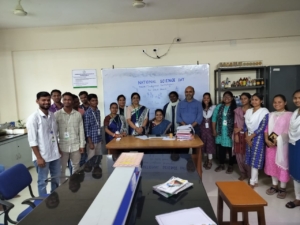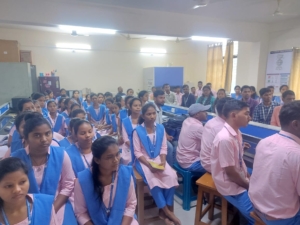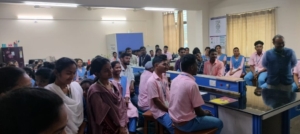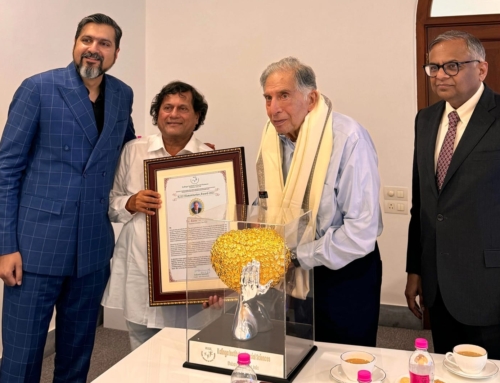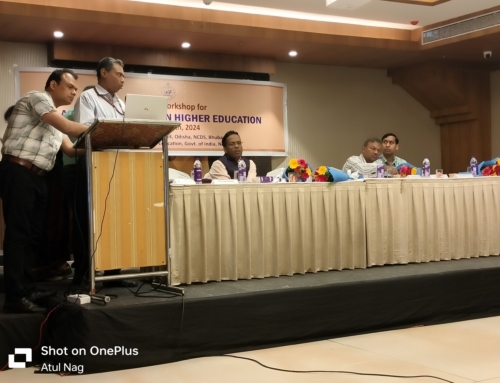The School of Comparative Indic Studies and Tribal Science (SCISTS) celebrated National Science Day on 28th February 2024.
National Science Day is celebrated in India on February 28 each year to mark the discovery of the Raman effect by Indian physicist Sir C. V. Raman on 28 February 1928. For his discovery, Sir C.V. Raman was awarded the Nobel Prize in Physics in 1930.The theme of 2024 for the National Science Day, launched by Union Minister Dr. Jitendra Singh, is “Indigenous Technology for Viksit Bharat.” To mark the occasion, many activities are organized in educational institutions. National Science Day is celebrated to spread a message about the importance of science used in the daily life of the people.
On this occasion, School of CIST, KISS-DU observed the Science Day in presence of Hon’ble Vice Chancellor Professor Deepak Kumar Behera. He motivated the students and encouraged them to focus on the advancement in science for development of the nation. The integration and promotion of Indigenous Technology in the context of Viksit Bharat involves leveraging traditional knowledge, practices, and innovations that have been developed by India’s indigenous communities over centuries. These technologies and practices are often sustainable, environmentally friendly, and closely adapted to the local context, making them valuable resources for addressing contemporary challenges in areas such as agriculture, healthcare, water conservation, and energy. Indigenous agricultural practices, such as mixed cropping, use of organic fertilizers, and traditional water conservation techniques can enhance sustainable farming. Traditional medicine systems like Ayurveda, Siddha, and Unani have a vast repository of knowledge on herbal medicines, treatments, and wellness practices. These can be integrated into the mainstream healthcare system to provide holistic and cost-effective care. Traditional knowledge can also contribute to sustainable energy solutions, such as the use of biomass for fuel and the construction of buildings using natural materials and designs that naturally regulate temperature, reducing the need for artificial heating and cooling. Indigenous communities often have a deep understanding of local ecosystems and practices for sustainable management of forests, wildlife, and other natural resources. These practices can inform broader conservation efforts and policies. Promoting traditional crafts and textiles not only helps in preserving cultural heritage but also supports sustainable livelihoods. Documenting traditional knowledge systematically to preserve it and make it accessible for further research and development.
Dean of SCIST, encouraged the students for facilitating partnerships between indigenous communities, researchers, and industries to co-develop and scale indigenous technologies. Integrating knowledge of indigenous practices into educational curricula and promoting awareness among the broader population. Encouraging innovation to adapt traditional practices to contemporary needs and technologies, ensuring they are scalable and economically viable. Indigenous technology not only offers sustainable and locally adapted solutions to modern challenges but also provides a means to preserve India’s rich cultural heritage. The integration of these technologies in the vision for a Viksit Bharat can contribute significantly to sustainable development, environmental conservation, and the promotion of equity and inclusiveness. The School also has organized debate competition to facilitate the awareness of National Science Day.

